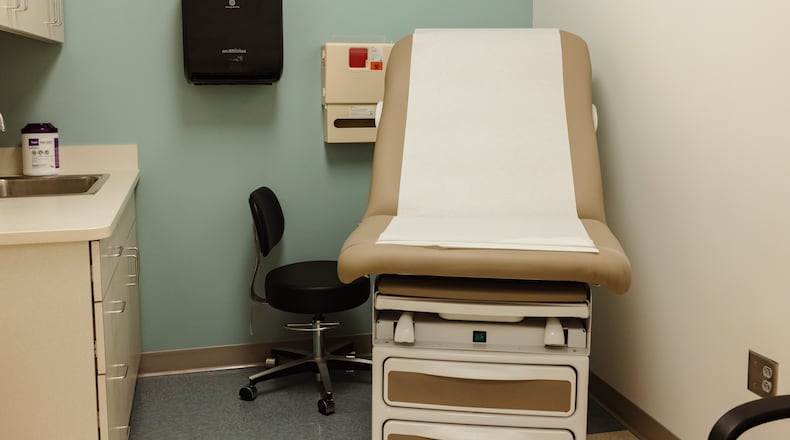As Georgia is preparing to fund construction of a new medical school with the hope of solving a shortage of doctors, the federal government has been tracking areas with primary care provider shortages for decades.
Across the country, the federal government has designated over 1,000 areas as primary care shortage areas. To earn this designation, an area, typically a county, demonstrates a need for primary care physicians based on the ratio of doctors to residents, along with the percent of population below 100% of the Federal Poverty Level (FPL), and travel time to the nearest source of care.
Gov. Brian Kemp unveiled plans last month to include $50 million in spending to speed the construction of a new medical school on UGA’s campus. Clarke County, where Athens is located within, is designated as a Health Professional Shortage Area (HPSA). According to federal data, the area is short 16 clinicians needed based upon the number of residents in the area.
Clarke County is one of 13 Georgia counties in need of more than 10 physicians to serve its population. The county showing the largest shortage of primary care doctors is Clayton County, where the federal Health Resources and Services Administration estimates 40 are needed.
Kemp and his allies have said the new medical college would help address the statewide physician shortage. In a recent interview, he said the new medical school, along with a proposed new $178 million dental school campus in Savannah, would also “help tackle our rural health care needs.”
“Having a new medical school churning out more doctors and a dental school churning out more dentists is good,” he said. “And I think the time is right for that.”
In all, Georgia has 36 counties that received a HPSA score of 20 and above, meaning they have the greatest need for clinicians. Among those counties, the need is mostly for physicians to serve low income residents.
The designations help to determine how nearly $1 billion in federal funding for primary care needs across the country is spent.
In metro Atlanta, southwest Atlanta is also listed as an area in need of another 13 providers. Southwest Atlanta was hit hard by the closure of two Atlanta Medical Center hospitals in 2022 — in downtown and East Point.
The AMC hospitals were owned by Wellstar Health System. Last year Wellstar took over Augusta University’s hospitals in a nearly $800 million pact that dealmakers also touted as a way to better train physicians for jobs around the state.
A report produced by Morehouse and consultants Ernst & Young in partnership with Fulton County found that Southern Fulton has no specialists in cardiology, pulmonology or infectious diseases; no doctors that care for patients with heart disease, respiratory diseases and HIV and AIDS, all of which are conditions that heavily affect the people living in the community of 234,000 residents.
KFF Health News, a national newsroom that covers health issues, reports it’s up to state offices to identify populations and locations that might qualify as shortage areas and submit them to HRSA, which then scores the extent of any shortages.
In Georgia, KFF Health News found nine counties that have faced primary care shortages for more than 40 years: Jasper, Crawford, Macon, Schley, Lee, Terrell, Screven, Brantley and Brooks.
Under HRSA’s guidelines, nurse practitioners, physician assistants, and certified nurse midwives are not counted as primary care providers.
Georgia counties that need the most primary care providers
These counties in Georgia may not have scored the highest based upon their overall need for primary care providers, but ranked highest for the number of providers needed.
Clayton County-40
Clarke County- 16
Gwinnett County (southwest Gwinnett)- 16
Richmond County/South Columbia County-15
Muscogee County- 14
Dougherty County- 14
Houston County- 13
Hall County- 13
Fulton County (southwest Atlanta)- 13
Lowndes County- 12
Source: Health Resources and Services Administration
The Atlanta Journal-Constitution and Report for America are partnering to add more journalists to cover topics important to our community. Please help us fund this important work at ajc.com/give
Keep Reading
The Latest
Featured



